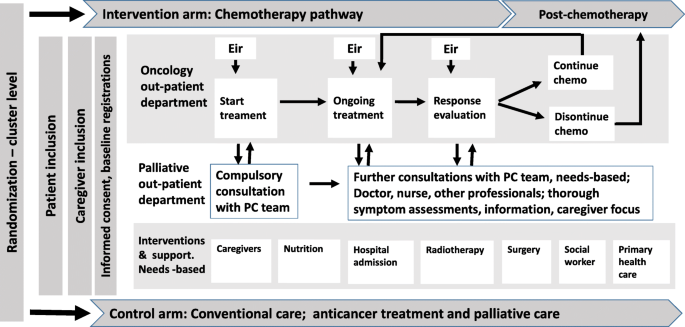
These are the things you should keep in mind when thinking about a career of pediatric home care nursing. Here are some benefits of the job and regulations governing the field. You can read on to learn about this rewarding occupation. You'll be glad that it was! Read on to learn more about how it works and the benefits it provides. After reading this article, you'll be well on your way to a rewarding career in pediatric home health nursing. Don't miss the Work environment section.
Benefits of pediatric home nursing
Pediatric home health nursing can be more cost-effective than institutional care. Children who need nursing care in their own homes benefit from the flexibility offered by pediatric home nurses. Pediatric private duty nursing is a valuable option for families who are dealing with illness. The benefits of pediatric home health nursing cannot be overlooked. Learn more about pediatric private duty nurse services. Many benefits of pediatric home care nursing services are well-known.

Pediatric home care is a service that provides pediatric nurses with a variety services that make parents' lives more easy and convenient. Pediatric homecare allows parents to select the visitation schedule for their child. As a result, the child can attend school and enjoy time with friends. This helps to reduce stress and minimize the need for repeat visits to the pediatrician. Additionally, pediatric home care may act as a bridge between the child and the pediatrician. A home health nurse can often provide the necessary care for children who are unable to see their pediatrician.
Regulations
State regulations for pediatric home health nursing services should align their payment and quality standards with other forms of skilled nursing care. Higher Federal Medical Assistance Percentage rates could tie payment increases to increased payments. The state could also implement stratification of rates depending on the patient’s medical history. This could encourage nurses in high-risk areas to be admitted. While it is not legal in certain states to pay family members for caregiving, it might be a way to increase the number needed home health nurses. In addition to expanding the workforce, providing compensation for family members who have been trained in nursing could reduce the financial burden on patients and their loved ones.
While many aspects are the same for pediatric home nurses as they are for adults, the exact details and quality of care may vary. The most common differences between adult and pediatric home health care include the fact that adults are required to undergo some type of training, while children's care does not. A lack of standardization in quality and regulations can cause inconsistent and poor-quality care.
Environment for work
To be a successful home-based pediatric nurse, it is important to keep abreast of the latest developments as well as workplace trends. Staying on top workplace trends is key to success in this competitive field. A growing demand for pediatric care is driving home health nurses. Here are some tips for pediatric nurses to improve their work environments.

The best part about the job is the ability to work with many types of patients. You may need to adjust your medications and treatment plans depending on the job you do. To treat breathing problems, it is possible to move the patient around. You'll need to learn how to interact with various patient types as a pediatric nursing assistant. For example, you might need to give an infant a different medication than a child with pneumonia.
FAQ
What are the various types of insurance for health?
There are three types of insurance that cover health:
-
Private insurance covers the majority of your medical costs. You pay monthly premiums for this type of insurance, which is usually purchased directly from private firms.
-
Although most medical costs are covered by public insurance, there are certain restrictions. Public insurance, for example, will not cover routine visits to doctors or hospitals, labs and X-ray facilities.
-
For future medical expenses, medical savings accounts are used. The funds are saved in a separate account. Most employers offer MSA programs. These accounts are not subject to tax and accumulate interest at rates similar bank savings accounts.
How do I get health insurance free in my locality?
If you are eligible, you can apply for free insurance. You might be eligible if you qualify for Medicaid, Medicare and CHIP.
What's the difference between public health and health policy?
In this context, the terms refer both to the decisions made and those of legislators by policymakers. These policies affect how we deliver healthcare services. A decision to build or renovate a hospital could be taken locally, regionally, and nationally. Similarly, the decision about whether to require employers to offer health insurance may be made by local, regional or national officials.
Statistics
- For the most part, that's true—over 80 percent of patients are over the age of 65. (rasmussen.edu)
- For instance, Chinese hospital charges tend toward 50% for drugs, another major percentage for equipment, and a small percentage for healthcare professional fees. (en.wikipedia.org)
- The healthcare sector is one of the largest and most complex in the U.S. economy, accounting for 18% of gross domestic product (GDP) in 2020.1 (investopedia.com)
- Over the first twenty-five years of this transformation, government contributions to healthcare expenditures have dropped from 36% to 15%, with the burden of managing this decrease falling largely on patients. (en.wikipedia.org)
- Foreign investment in hospitals—up to 70% ownership- has been encouraged as an incentive for privatization. (en.wikipedia.org)
External Links
How To
What are the Four Health Systems?
The healthcare system is complex and includes many organizations, such as hospitals, clinics. pharmaceutical companies. insurance providers. government agencies. public health officials.
The ultimate goal of the project was to create an infographic that would help people to better understand the US health system.
These are some key points.
-
Healthcare spending is $2 trillion annually, representing 17% of the GDP. This is almost twice as large as the entire defense budget.
-
Medical inflation was 6.6% in 2015, higher than any other category of consumer.
-
Americans spend 9% on average for their health expenses.
-
Over 300 million Americans are uninsured as of 2014.
-
The Affordable Care Act (ACA) has been signed into law, but it isn't been fully implemented yet. There are still many gaps in coverage.
-
A majority of Americans believe that there should be continued improvement to the ACA.
-
The US spends the most money on healthcare in the world than any other country.
-
Affordable healthcare for all Americans would reduce the cost of healthcare by $2.8 trillion per year.
-
Medicare, Medicaid and private insurers pay 56% of healthcare expenses.
-
People don't have insurance for three reasons: they can't afford it ($25 Billion), don’t have enough time to search for it ($16.4 Billion), and don’t know about it ($14.7Billion).
-
There are two types, HMO (health maintenance organization), and PPO (preferred providers organization).
-
Private insurance covers most services, including doctors, dentists, prescriptions, physical therapy, etc.
-
Programs that are public include outpatient surgery, hospitalization, nursing homes, long-term and preventive care.
-
Medicare is a federal program which provides senior citizens with coverage for their health. It covers hospital stays, skilled nursing facilities stays, and home care visits.
-
Medicaid is a joint federal-state program that provides financial assistance for low-income individuals or families who earn too little to qualify for other benefits.